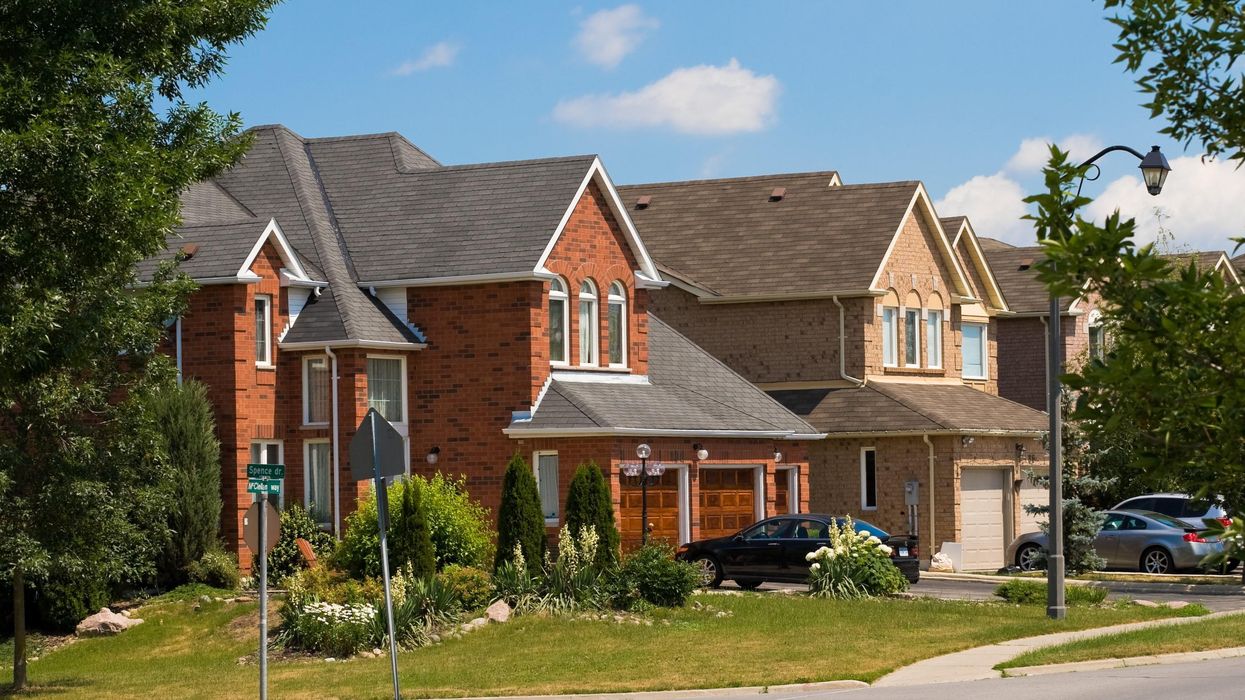Here's Why Canadians Under 28 Years Old Still Want To Buy Their First Home In A Major City
The hefty cost of city living is not putting young people off. 🤑

Suburban homes near Toronto.
Housing in Canada can be a complicated situation, especially with the rising prices in major cities like Toronto making home ownership feel almost impossible for first-time buyers.
However, it's apparently not putting young people aged between 18 and 28 off, as Gen Z are still interested in living either in a big city, or in the nearby suburbs.
A study, conducted by Sotheby's International Realty Canada and market research company Mustel Group, found that 40% of Canadian Gen Z-ers want to buy their first home in a major hub.
A nearly equal amount — 42% — want to shack up in the suburbs just outside of the city.
Compare that to the young people who want to get on the property ladder in a small city (7%), a rural area (3%), or are just unsure, (8%) and it seems a considerable majority of Canuck youth are looking to the urban world.
One of the largest reasons for their desire to be closer, or in, an urban centre is actually because those surveyed want to be nearer to their offices and workplaces.
The study points out that this goes against the idea that young people are more likely to be remote workers, as a lot of them are seemingly preparing to be called back into the office.
Nearly half of the Gen Z population, around 47%, cited that being near their place of work was a top priority when buying a home.
Other top priorities included a safe neighbourhood (56%), proximity to a grocery store (39%), and transit friendliness (36%).
It's interesting to consider that the few places in Canada where you can buy a house for under $200,000 are all either small towns or the prairies.
But, if Gen Zers are wanting to buy a home in a big city like Toronto or Vancouver, they're likely going to have to do some major saving as the average cost of a house is often over $1,000,000. Eek!